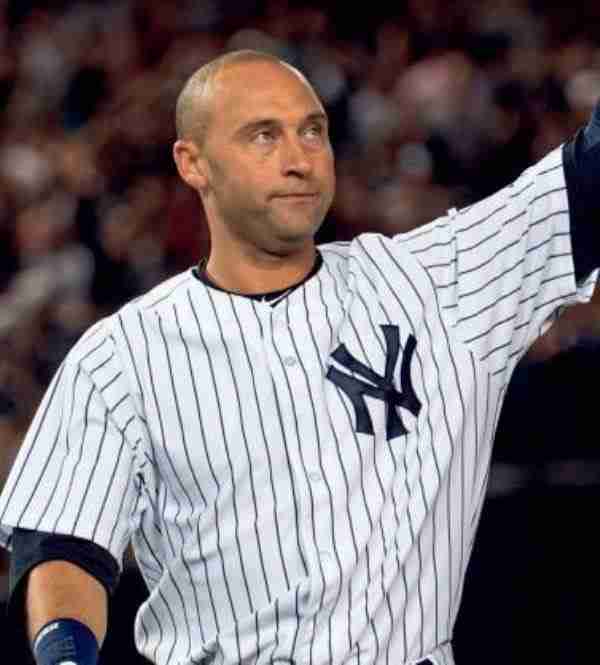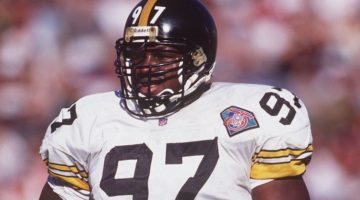PHOTO COURTESY OF ALPHAOMEGA.DUPONT.COM
New York (AP) — Derek Jeter came within one vote of being a unanimous pick for the Hall of Fame while Larry Walker also earned baseball’s highest honor on Tuesday.
The longtime New York Yankees captain appeared on 396 of 397 ballots cast by the Baseball Writers’ Association of America, falling just shy of the standard set when longtime Yankees teammate Mariano Rivera became the first unanimous selection last year. Jeter’s 99.7% moved above Ken Griffey Jr. (99.3%) for the second-highest.
“I was speechless when I got the call,” Jeter said. “Quite frankly, I was pretty nervous, and when I got it I really didn’t know what to say.”
It was not immediately known which voter didn’t choose Jeter, who was listed on all 219 ballots made public before the announcement. The BBWAA will release additional ballots on Feb. 4 of writers who chose a public listing.

“I don’t like to jinx anything,” Jeter said. “No one assumes they’re going to go to the Hall of Fame.”
Walker appeared on 304 ballots, six above the 75% needed, up from 54.6% last year. He was making his 10th and final appearance on the BBWAA ballot and tweeted earlier in the day “I believe I’m going to come up a little short today.”
Pitcher Curt Schilling was third with 278 votes (70%) in his eighth ballot appearance, an increase from 60.9% but still 20 votes shy. The steroids-tainted pair of Roger Clemens (61%) and Barry Bonds (60.7%) both showed slight increases. Bonds rose from 59.1% last year and Clemens from 59.5%.
Jeter and Walker will be inducted on July 26 at the Hall in Cooperstown along with catcher Ted Simmons and former players’ association head Marvin Miller, who were voted in last month by the Hall’s Modern Era Committee.
A five-time World Series champion, Jeter became a face of baseball as he starred in the nation’s largest media market from 1995-2014. He was the AL Rookie of the Year in 1996 as the Yankees won the World Series for the first time since 1978, then led New York to three straight titles from 1998-2000, the only team to accomplish the feat since the 1972-74 Oakland Athletics. The rebuilt Yankees added their 27th title in 2009.
Jeter defined himself by moments more than numbers: his unexpected backhand flip from foul territory to throw out Oakland’s Jeremy Giambi in the 2001 AL Division Series; his Mr. November home run in the 10th inning that won Game 4 of the 2001 World Series; his face-first leap into the stands after catching a 12th-inning popup by Boston’s Trot Nixon in 2004; a home run into the left-field bleachers for his 3,000th hit as part of a career-best 5for-5 game in 2011; a ninth-inning walkoff single in his final home game in 2014; a single in his last at-bat three days later that lifted his career average to .310.
Drafted sixth overall in 1992 after he was spotted by Yankees scout Dick Grouch as a high school junior a year earlier, Jeter was bypassed by Houston (Phil Nevin), Cleveland (Paul Shuey), Montreal (B.J. Wallace), Baltimore (Jeffrey Hammonds) and Cincinnati (Chad Mottola). He debuted for the Yankees on May 29, 1995, and was installed at shortstop the folliowing spring training by new manager Joe Torre.
Jeter became a 14-time All-Star and five-time Gold Glove winner despite defensive metrics that were maligned. He was appointed captain by owner George Steinbrenner in June 2003, filling a position that had been open since Don Mattingly’s retirement after the 1995 season. He finished with 3,465 hits, 260 homers, 358 stolen bases and 1,311 RBIs, earning $266 million from the Yankees.
He was the ninth player elected to the Hall after playing exclusively for the Yankees, joining Lou Gehrig (1939), Bill Dickey (1954), Joe DiMaggio (1955), Earle Combs (1970), Whitey Ford and Mickey Mantle (1974), Phil Rizzuto (1994) and Rivera.
Jeter used some of his savings to join the group purchasing the Miami Marlins in September 2017, becoming CEO. Jettisoning veterans and going with low-priced youth in a way the Yankees never did, Jeter endured a pair of last-place finishes and the lowest home attendance in the major leagues.
Walker hit .313 with .383 homers, 1,311 RBIs and 230 stolen bases for Montreal (1989-94), Colorado (19952004) and St. Louis (2004-05), a five-time All-Star and seven-time Gold Glove winner. He led the major leagues in batting average in 1998, 1999 and 2001.
Evaluating his offensive performance gave some baseball writers difficulty because he spent 9 1/2 seasons hitting at home in the thin air of Denver’s Coors Field. Walker batted .381 with an 1.172 OPS and 154 home runs in 597 games at Coors and .282 with 229 homers and an .873 OPS in 1,391 games elsewhere, according to the Elias Sports Bureau.
He received just 20.3% in his first ballot appearance in 2011 and dropped as low as 10.2% in 2014. He rose to 21.9% in 2017 before jumping to 34.1% in 2018.
Walker became the second Canadian-born player elected to the Hall after Ferguson Jenkins in 1991.
“Being Canadian, you’re born into this world with a stick in your hand and skates on your feet,” Walker said. “So that’s how I was as a kid. You played hockey and that’s all that really mattered. When hockey didn’t quite go the way I wanted, baseball more or less found me.”












No Comment